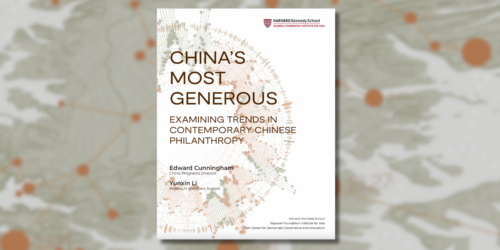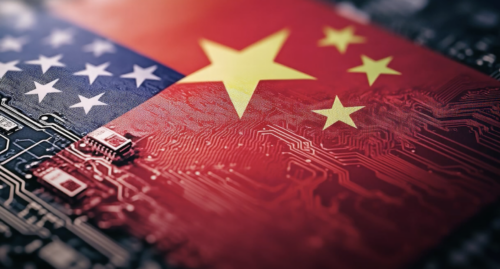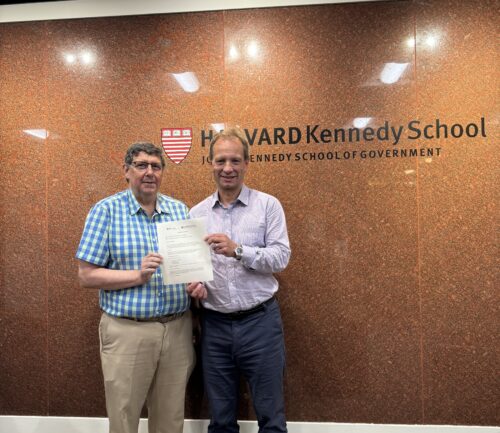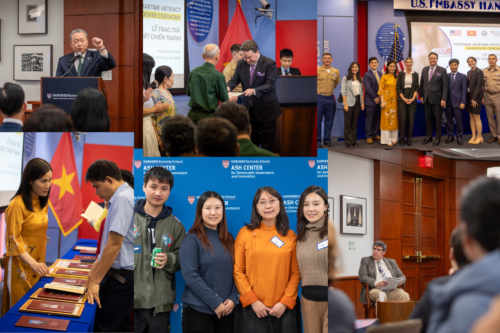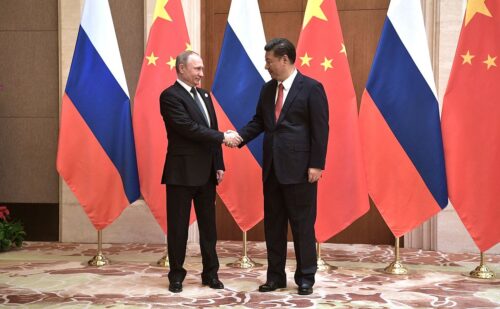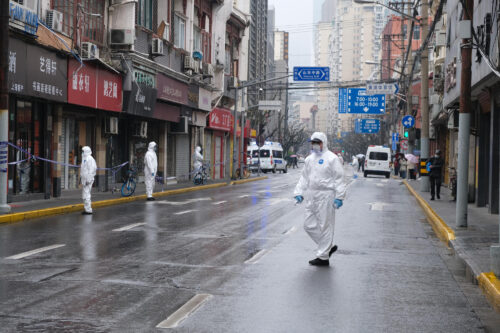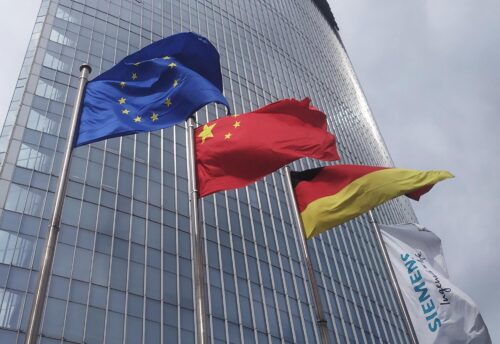
Anthony Saich
Daewoo Professor of International Affairs and the Harvard Kennedy School; Director of the Rajawali Foundation Institute for Asia
Understanding the toughest challenges confronting China — from energy policy to citizen satisfaction
Asia Energy and Sustainability Initiative, China and the World, China Philanthropy Project
The China Public Policy Program at Harvard Kennedy School provides a school-wide platform to analyze key policy challenges both within China and in China’s increasing role in the world.
Daewoo Professor of International Affairs and the Harvard Kennedy School; Director of the Rajawali Foundation Institute for Asia
Director of Ash Center China Programs and of the Asia Energy and Sustainability Initiative; Adjunct Lecturer in Public Policy
S.T. Lee Professor of U.S.-Asia Relations
Associate Director, Rajawali Foundation Institute for Asia
Faculty Assistant and Program Coordinator, Rajawali Foundation Institute for Asia
Our rich diversity of fellows includes a cohort of post-doctoral fellows and faculty from leading US and Chinese research universities, doctoral candidates from partner universities in China, and influential practitioners from industry, the non-profit sector, and other areas.
The China Public Policy Program is also home to junior scholars of exceptional promise in the field of contemporary Chinese public policy and is proud to play a key role in supporting Kennedy School students in the form of teaching, tuition assistance, fellowships, and grants for student-led events, initiatives, and applied learning opportunities.
China Public Policy Program Postdoctoral Fellow, AY 2025-2026
Non-resident Senior Fellow, October 2025 - September 2026
Research Fellow, Postdoctoral Fellow, AY2025-2026
By funding a combination of degree students, academic research, results-driven conferences, and targeted senior practitioners, the Hui Fund built a powerful body of strategic thinkers working on issues of direct relevance to the U.S. and Chinese policy-making communities. The Fund prioritized collaborative research initiatives that expressly collaborate with institutions and individuals from China in an effort to deepen the intellectual foundation of exchange between Harvard and the region.
From 2003 through 2016, Anthony Saich, director of the Rajawali Foundation Institute for Asia, conducted detailed surveys of Chinese satisfaction with different levels of government. This research revealed that citizen satisfaction with the government had increased since 2003, but also that stark differences in government approval ratings existed based on government level as well as respondents’ region and income level. You can read the final report on the work, “Understanding CCP Resilience: Surveying Chinese Public Opinion Through Time” online here. A fuller analysis can be found online here.
Media Release
The Rajawali Foundation at Harvard Kennedy School released, “China’s Most Generous – Examining Trends in Contemporary Chinese Philanthropy”, which provides insights into current trends among China’s major donors and recipients.
Video
Anthony Saich, the director of the Rajawali Foundation Institute for Asia and Daewoo Professor of International Affairs recently spoke at the China Centre, University of Sydney about President Donald J. Trump and his relationship with China.
This talk, entitled “An Unpredictable President and U.S. China Relations”, provides an initial analysis of how a second Trump administration could influence US-China relations forecasting his approach, and figuring out whether he will adopt the role of a deal-maker or take a more combative stance aimed at undermining rivals.
Saich focuses on three key areas of concern: tariffs, Taiwan, and technology controls.
Media Release
The Rajawali Foundation Institute for Asia at the Harvard Kennedy School, Harvard University and the East Asian Institute (EAI) at the National University of Singapore, are delighted to announce a new academic collaboration.
Feature
Chinese President Xi Jinping has laid out his vision for China’s economic and social future – and it places Xi Jinping at the very center.
Feature
This past semester, the Rajawali Foundation Institute for Asia engaged in conversations and research on topics ranging from Indonesia’s election to US-Taiwan relations with the goal of continuing to develop policy solutions to the region’s most pressing concerns.
Book
This book offers policymakers a better understanding of institutional change in dynamic economic contexts, helping them enhance economic performance.
Media Release
The Rajawali Foundation Institute for Asia is pleased to announce the publication of Institutional Change and Adaptive Efficiency: A Study of China’s Hukou System Evolution.
Video
Feature
While China has been reluctant to criticize Russia’s invasion of Ukraine, HKS Professor Tony Saich believes that Beijing is treading a fine line in not alienating the West and risk becoming sanctions targets themselves
Q+A
Tony Saich says demonstrators, angered over draconian COVID policies, are adopting tactics used in 1989.
Q+A
As twice a decade conclave of party leaders concludes, Tony Saich asks whether Xi risks creating a “Putin syndrome” for China.
Q+A
With a new ban on forced labor and frustration over Beijing’s continued support of Russia mounting, the EU’s relationship with China is set to reach a new low.
Feature
Rajawali Foundation Institute for Asia Director Tony Saich, argues that Xi Jinping is telegrahing his intention to remain the dominant political force in China well into the next decade.
Policy Brief
Tony Saich predicts themes at the Chinese Communist Party’s (CCP) 20th Party Congress.
Q+A
The Indo-Pacific Economic Framework (IPEF) could be beneficial for member countries, but without a regional trade agreement, a new administration could raise tariffs or otherwise change the terms of trade.








